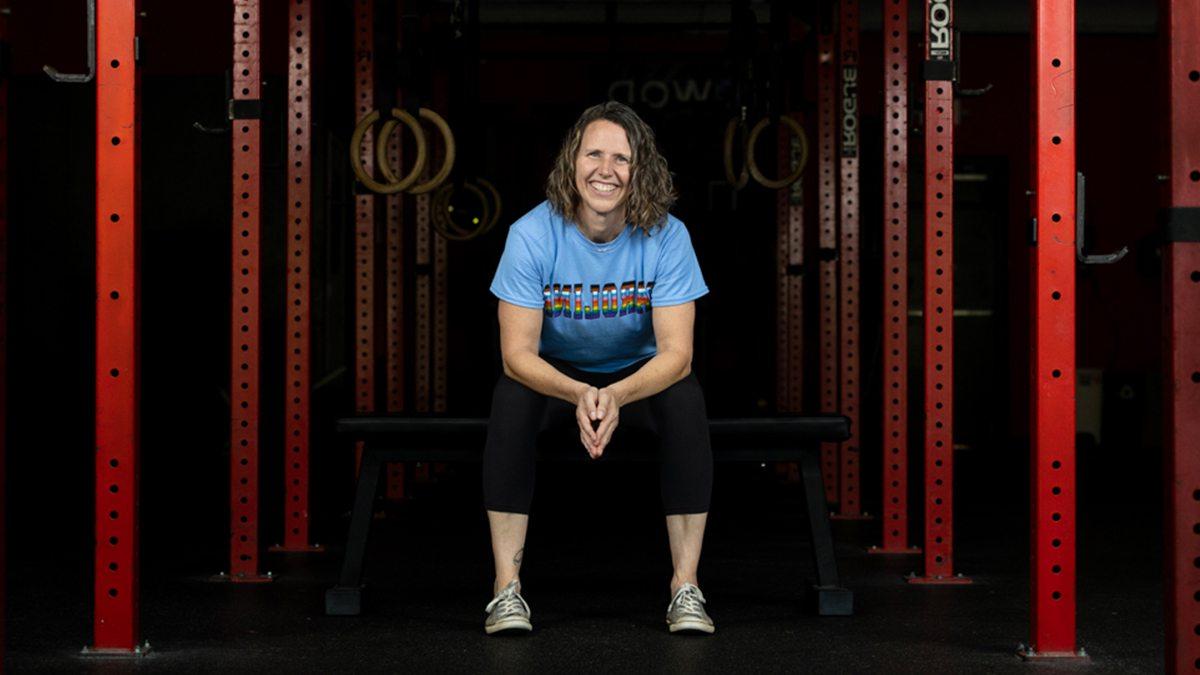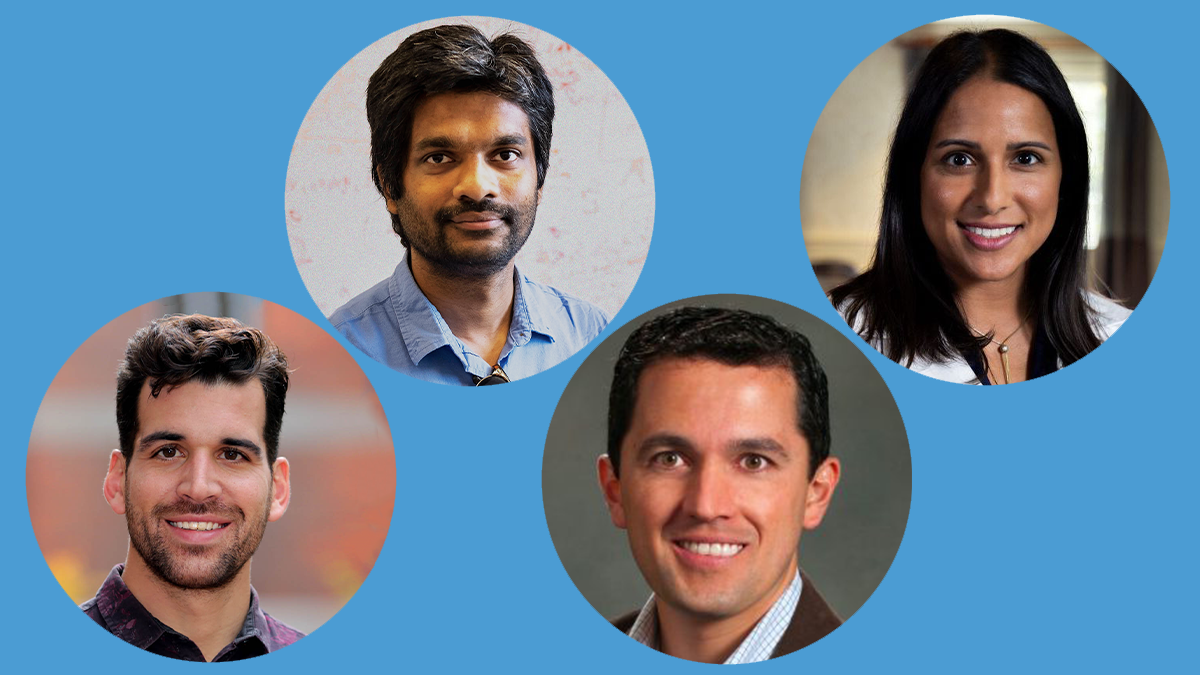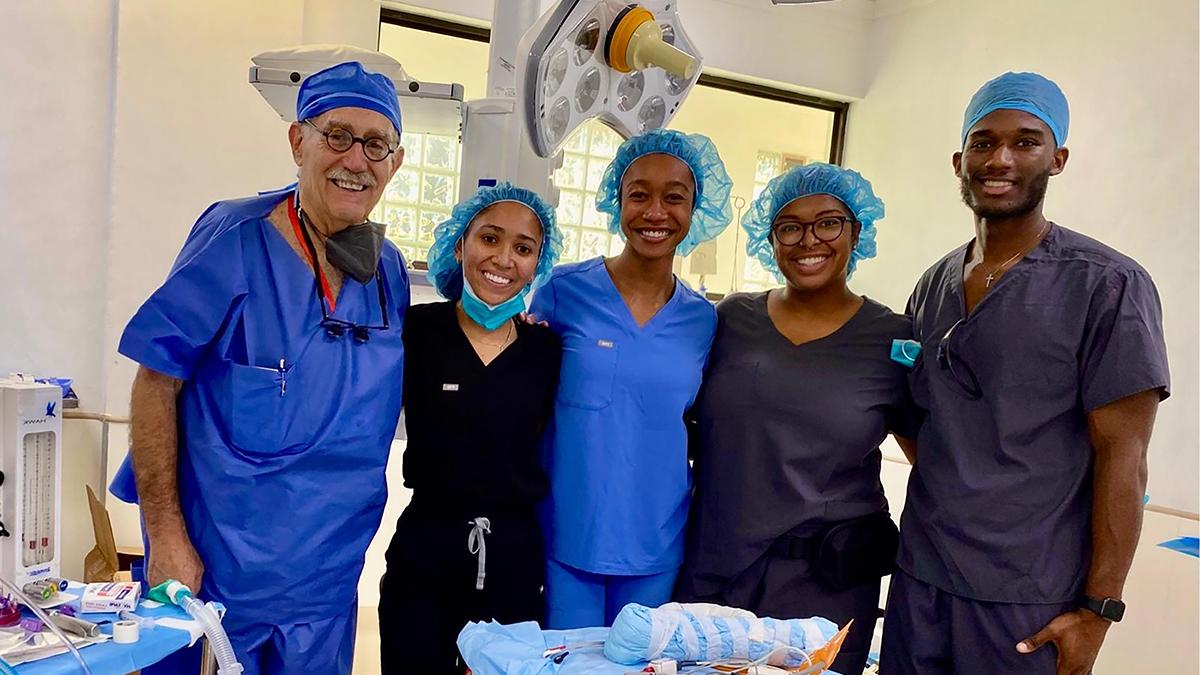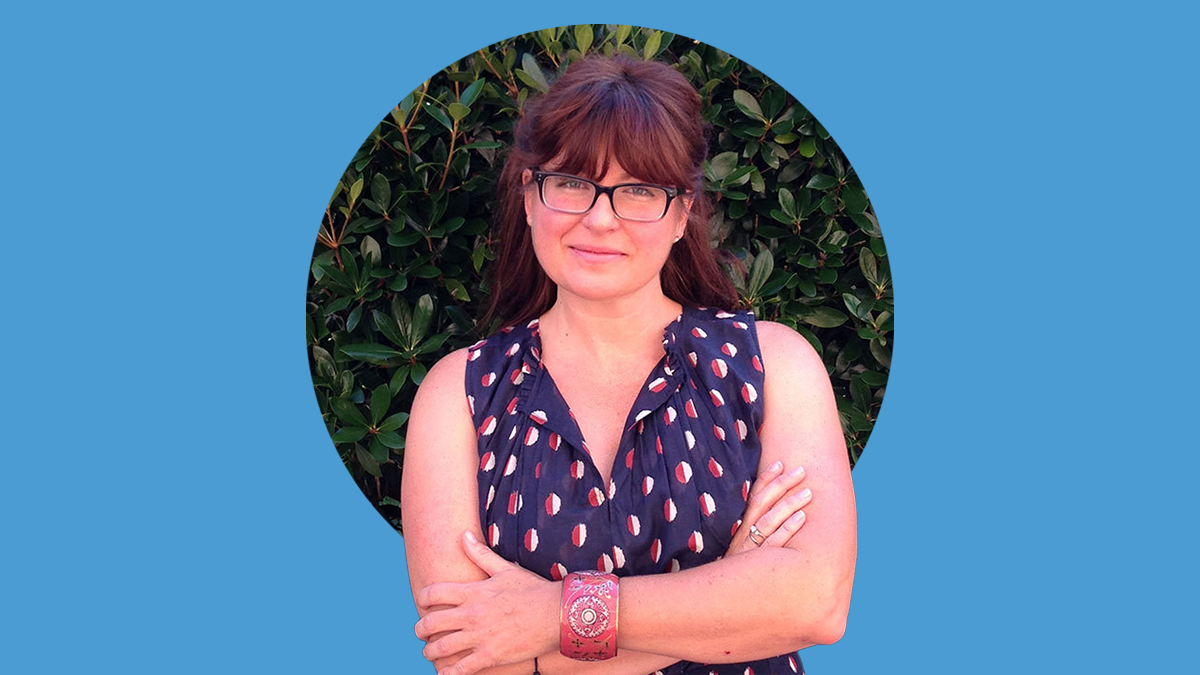Kara Hume strives to offer fitness for all
The autism researcher is building an exercise program called Power Hour for people of varying abilities.

About 10 years ago, when Kara Hume decided that chasing around her preschoolers wasn’t enough exercise, she joined a gym and started working out again. One day, she got distracted by a class taking place in the nearby fitness studio.
“They just looked so fit,” Hume says. “And the women looked so strong. They were lifting barbells and doing so many different movements.”
That’s when Hume began doing CrossFit, a popular fitness program that combines Olympic lifting with high-intensity movements.
“I had never used a barbell before,” she shares. “It felt so empowering to be able to learn these movements.”
Hume has been participating in CrossFit ever since. She is also the Richard “Dick” Coop Faculty Scholar in Education within the UNC School of Education, a faculty fellow at the Frank Porter Graham Child Development Institute and director of the National Clearinghouse on Autism Evidence and Practice.
She and her colleagues have conducted two of the largest school-based studies on autistic students and have sorted through thousands of articles on the topic to help teachers and families identify successful interventions. During the pandemic, they developed COVID-related resources for families that have been downloaded more than 300,000 times.
Over the years, Hume has merged these passions for fitness and supporting neurodivergent communities. She’s gone whitewater rafting with children with disabilities, rock-climbed with students at an alternative school, and since 2018 has helped coach an adaptive CrossFit class for people with intellectual and developmental disabilities.
Now, the class, called Power Hour, is part of a National Institutes of Health project focused on promoting healthy aging and the physical and mental health of adults with intellectual disabilities.
“We hear from people all the time that Power Hour is making a difference for them, but we’ve never been able to prove it through research,” Hume says. “And now we’ll be able to study it in a much more systematic way, looking at health metrics and quality of life.”
Inclusive exercise spaces
Hume has worked with all age levels during her research career, from preschool students to adolescents. Now, she’s excited to work with autistic adults.
“Post-secondary life is really where my interest is headed, and I’m really passionate about following this population beyond high school graduation,” Hume shares. “Once you lose your individualized education plan after leaving high school, there just aren’t a lot of guaranteed services for autistic people.”
For her new NIH project, she’s collaborating with Carolina developmental scientist Brianne Tomaszewski and University of Arkansas’ Melissa Savage to study the physical and mental health outcomes of Power Hour and how individualized coaching impacts physical activity.
In a pilot study with 15 adults with disabilities and their caregivers, they tracked their activity using an Actigraph, similar to an Apple watch, and assessed their body composition using an egg-shaped device called a Bod Pod.
Since many people within this population are sensitive to their environment, “we took time to work through the potential measures and get feedback at every step,” Hume stresses.
The next step? A 120-person clinical trial.
As she continues working with adults in the autism community, she’d like to engage them more in outdoor spaces and activities like hiking, camping and rock climbing — hobbies Hume loves.
“There’s this phrase in the disability community: ‘an enviable life.’ What is it that makes someone look at your life and say, ‘Oh, I like that. I think I would want to do that. I want to have that in my life.’ How can we make sure that those enviable qualities are centered in the lives of autistic people?”







